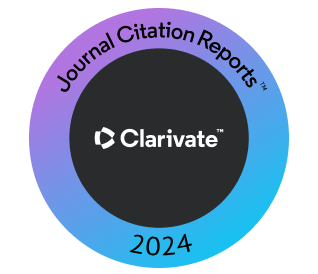Immunological Role of Megakaryocytes and Platelets during Influenza A Virus Infection
DOI:
https://doi.org/10.14500/aro.11197Keywords:
Influenza A virus, Megakaryocytes, Platelets, Killer activation receptors, FasLAbstract
Influenza viruses pose a serious threat to public health, with severe cases often characterized by lung damage and inflammation. However, the underlying mechanisms of these processes remain poorly understood. This study aimed to investigate the essential role of megakaryocytes (MKs) and platelets (PLTs) in influenza A virus (IAV) infections. Conducted at the Department of Rare Respiratory Diseases, Cystic Fibrosis, and Pulmonology, Nord University Hospital, Marseille, France, the study collected seventy blood samples between October 2018 and March 2019. Samples were obtained from healthy individuals and patients diagnosed with IAV. Messenger RNA was extracted from isolated PLTs and subjected to quantitative real-time-polymerase chain reaction using sets of primers targeting immune marker genes. Western blot analysis was also performed for confirmation, focusing on Fas Ligand (FasL). Results showed that PLTs from IAV-infected individuals expressed the FasL, tumor necrosis factor-related apoptosis-inducing ligand, and Granulysin (GNLY) receptors when activated. Furthermore, an in vitro assay revealed the presence of FasL receptors on infected CMK cell lines. In vivo investigations demonstrated that activated MKs and PLTs in mice also expressed FasL. Interestingly, none of the immune receptors under investigation were found in both MKs and PLTs in mouse model studies. In conclusion, MKs and PLTs play a significant role in influencing immune responses that may help prevent viral spread during infection. However, further examination of their mechanisms of action is warranted. Understanding the involvement of these cells in influenza pathogenesis could offer valuable insights for developing potential therapeutic strategies.
Downloads
References
Ahmad, R., Menezes, J., Knafo, L., and Ahmad, A., 2001. Activated human platelets express Fas-L and induce apoptosis in Fas-positive tumor cells. Journal of Leukocyte Biology, J Leukoc Biol, 69(1), pp. 123-128. DOI: https://doi.org/10.1189/jlb.69.1.123
Arabanian, L. S., Kujawski, S., Habermann, I., Ehninger, G., and Kiani, A., 2012. Regulation of fas/fas ligand-mediated apoptosis by nuclear factor of activated T cells in megakaryocytes. British Journal of aematology, Br J Haematol, 156(4), pp. 523-534. DOI: https://doi.org/10.1111/j.1365-2141.2011.08970.x
Ashkenazi, A., and Dixit, V. M., 1998. Death receptors: Signaling and modulation’., Science, 281(5381), pp. 1305-1308. DOI: https://doi.org/10.1126/science.281.5381.1305
Assinger, A., Schrottmaier, W. C., Salzmann, M., and Rayes, J., 2019. Platelets in sepsis: An update on experimental models and clinical data. Frontiers in Immunology, Front Immunol, 10, pp.1687. DOI: https://doi.org/10.3389/fimmu.2019.01687
Baier, G., Telford, D., Gulbins, E., Yamada, N., Kawakami, T., and Altman, A., 1993. Improved specificity of RT-PCR amplifications using nested cDNA primers. Nucleic Acids Research, Nucleic Acids Res, 21(5), pp. 1329-1330. DOI: https://doi.org/10.1093/nar/21.5.1329
Boilard, E., Pare, G., Rousseau, M., Cloutier, N., Dubuc, I., Levesque, T., Borgeat, P., and Flamand, L., 2014. Influenza virus H1N1 activates platelets through FcgammaRIIA signaling and thrombin generation. Blood, 123(18), pp. 2854-2863. DOI: https://doi.org/10.1182/blood-2013-07-515536
Chao, C. H., Wu, W. C., Lai, Y. C., Tsai, P. J., Perng, G. C., Lin, Y. S., and Yeh, T. M., 2019. Dengue virus nonstructural protein 1 activates platelets via Toll-like receptor 4, leading to thrombocytopenia and hemorrhage. PLOS Pathogens, PLoS Pathog, 15(4), pp. e1007625. DOI: https://doi.org/10.1371/journal.ppat.1007625
Crist, S. A., Elzey, B. D., Ludwig, A. T., Griffith, T. S., Staack, J. B., Lentz, S. R., and Ratliff, T. L., 2004. Expression of TNF-related apoptosis-inducing ligand (TRAIL) in megakaryocytes and platelets. Experimental Hematology, Exp Hematol, 32(11), pp. 1073-1081. DOI: https://doi.org/10.1016/j.exphem.2004.07.022
Crist, S. A., Sprague, D. L., and Ratliff, T. L., 2008. Nuclear factor of activated T cells (NFAT) mediates CD154 expression in megakaryocytes. Blood, 111(7), pp. 3553-3561. DOI: https://doi.org/10.1182/blood-2007-05-088161
Danon, D., Jerushalmy, Z., and De Vries, A., (1959) ‘. Incorporation of influenza virus in human blood platelets in vitro. Electron microscopical observation’., Virology, 9, pp. 719-722.Deutsch, V. R., and Tomer, A., (2006) ‘. Megakaryocyte development and platelet production’., British Journal of Haematology, Br J Haematol, 134(5), pp. 453-466. DOI: https://doi.org/10.1016/0042-6822(59)90168-0
Diacovo, T. G., Roth, S. J., Buccola, J. M., Bainton, D. F., and Springer, T. A., 1996. Neutrophil rolling, arrest, and transmigration across activated, surface-adherent platelets via sequential action of P-selectin and the beta 2-integrin CD11b/CD18. Blood, 88(1), pp. 146-157. DOI: https://doi.org/10.1182/blood.V88.1.146.bloodjournal881146
Dib, P. R. B., Quirino-Teixeira, A. C., Merij, L. B., Pinheiro, M. B. M., Rozini, S. V., Andrade, F. B., and Hottz, E. D. , 2020. Innate immune receptors in platelets and platelet-leukocyte interactions. Journal of Leukocyte Biology, J Leukoc Biol, 108(4), pp. 1157-1182. DOI: https://doi.org/10.1002/JLB.4MR0620-701R
Ebermeyer, T., Cognasse, F., Berthelot, P., Mismetti, P., Garraud, O., and Hamzeh-Cognasse, H., 2021. Platelet innate immune receptors and TLRs: A double-edged sword. International Journal of Molecular Sciences, Int J Mol Sci, 22(15), 7894. DOI: https://doi.org/10.3390/ijms22157894
Engelmann, B., and Massberg, S., 2013. Thrombosis as an intravascular effector of innate immunity. Nature Reviews Immunology, Nat Rev Immunol, 13(1), pp. 34-45. DOI: https://doi.org/10.1038/nri3345
Garcia-Garcia, J., and Ramos, C., 2006. [Influenza, an existing public health problem]’., Salud Pública de México, Salud Publica Mex, 48(3), pp. 244-267. DOI: https://doi.org/10.1590/S0036-36342006000300009
Griffith, T. S., Brunner, T., Fletcher, S. M., Green, D. R., and Ferguson, T. A., 1995. Fas ligand-induced apoptosis as a mechanism of immune privilege. Science, 270(5239), pp. 1189-1192. DOI: https://doi.org/10.1126/science.270.5239.1189
Hamzeh-Cognasse, H., Damien, P., Chabert, A., Pozzetto, B., Cognasse, F., and Garraud, O., 2015. Platelets and infections - complex interactions with bacteria. Frontiers in ImmunologyFront Immunol, 6, pp. 82. DOI: https://doi.org/10.3389/fimmu.2015.00082
Han, S. S., and Baker, B. L., 1964. The ultrastructure of megakaryocytes and blood platelets in the rat spleen. The Anatomical Record, Anat Rec, 149, pp. 251-267. DOI: https://doi.org/10.1002/ar.1091490208
Henn, V., Steinbach, S., Buchner, K., Presek, P., and Kroczek, R. A., 2001. The inflammatory action of CD40 ligand (CD154) expressed on activated human platelets is temporally limited by coexpressed CD40. Blood,98(4), pp. 1047-1054. DOI: https://doi.org/10.1182/blood.V98.4.1047
Hoffmann, E., Stech, J., Guan, Y., Webster, R. G., and Perez, D. R., 2001. Universal primer set for the full-length amplification of all influenza A viruses. Archives of Virology, Arch Virol, 146(12), pp. 2275-2289. DOI: https://doi.org/10.1007/s007050170002
Ibele, G. M., Kay, N. E., Johnson, G. J., and Jacob, H. S., 1985. Human platelets exert cytotoxic effects on tumor cells. Blood, 65(5), pp. 1252-1255. DOI: https://doi.org/10.1182/blood.V65.5.1252.bloodjournal6551252
Iuliano, A. D., Roguski, K. M., Chang, H. H., Muscatello, D. J., Palekar, R., Tempia, S., Cohen, C., Gran, J. M., Schanzer, D., Cowling, B. J., Wu, P., Kyncl, J., Ang, L. W., Park, M., Redlberger-Fritz, M., Yu, H., Espenhain, L., Krishnan, A., Emukule, G., van Asten, L., Pereira da Silva, S., Aungkulanon, S., Buchholz, U., Widdowson, M. A., Bresee, J. S., and Global Seasonal Influenza-associated Mortality Collaborator, N., 2018. Estimates of global seasonal influenza-associated respiratory mortality: a modelling study. Lancet, 391(10127), pp. 1285-1300.
Jirouskova, M., Shet, A. S., and Johnson, G. J., 2007. A guide to murine platelet structure, function, assays, and genetic alterations. Journal of Thrombosis and Haemostasis, J Thromb Haemost, 5(4), pp. 661-669. DOI: https://doi.org/10.1111/j.1538-7836.2007.02407.x
Josefsson, E. C., Burnett, D. L., Lebois, M., Debrincat, M. A., White, M. J., Henley, K. J., Lane, R. M., Moujalled, D., Preston, S. P., O’’Reilly, L. A., Pellegrini, M., Metcalf, D., Strasser, A., and Kile, B. T., 2014. Platelet production proceeds independently of the intrinsic and extrinsic apoptosis pathways. Nature Communications, Nat Commun, 5, pp. 3455. DOI: https://doi.org/10.1038/ncomms4455
Joseph, M., Auriault, C., Capron, A., Vorng, H., and Viens, P., 1983. A new function for platelets: IgE-dependent killing of schistosomes. Nature,303(5920), pp. 810-812. DOI: https://doi.org/10.1038/303810a0
Kahn, M. L., Nakanishi-Matsui, M., Shapiro, M. J., Ishihara, H., and Coughlin, S. R., 1999. Protease-activated receptors 1 and 4 mediate activation of human platelets by thrombin. Journal of Clinical Investigation, J Clin Invest,103(6), pp. 879-887. DOI: https://doi.org/10.1172/JCI6042
Kataoka, H., Hamilton, J. R., McKemy, D. D., Camerer, E., Zheng, Y. W., Cheng, A., Griffin, C., and Coughlin, S. R., 2003. Protease-activated receptors 1 and 4 mediate thrombin signaling in endothelial cells. Blood, 102(9), pp. 3224-3231. DOI: https://doi.org/10.1182/blood-2003-04-1130
Koupenova, M., Corkrey, H. A., Vitseva, O., Manni, G., Pang, C. J., Clancy, L., Yao, C., Rade, J., Levy, D., Wang, J. P., Finberg, R. W., Kurt-Jones, E. A., and Freedman, J. E., 2019. The role of platelets in mediating a response to human influenza infection. Nature Communications, Nat Commun, 10(1), pp. 1780. DOI: https://doi.org/10.1038/s41467-019-09607-x
LA, O. R., Tai, L., Lee, L., Kruse, E. A., Grabow, S., Fairlie, W. D., Haynes, N. M., Tarlinton, D. M., Zhang, J. G., Belz, G. T., Smyth, M. J., Bouillet, P., Robb, L., and Strasser, A., 2009. Membrane-bound Fas ligand only is essential for Fas-induced apoptosis. Nature, 461(7264), pp. 659-663. DOI: https://doi.org/10.1038/nature08402
Lefrancais, E., Ortiz-Munoz, G., Caudrillier, A., Mallavia, B., Liu, F., Sayah, D. M., Thornton, E. E., Headley, M. B., David, T., Coughlin, S. R., Krummel, M. F., Leavitt, A. D., Passegue, E., and Looney, M. R., 2017. The lung is a site of platelet biogenesis and a reservoir for haematopoietic progenitors. Nature, 544(7648), pp. 105-109. DOI: https://doi.org/10.1038/nature21706
Li, L., Wong, J. Y., Wu, P., Bond, H. S., Lau, E. H. Y., Sullivan, S. G., and Cowling, B. J., 2018. Heterogeneity in estimates of the impact of influenza on population mortality: A systematic review. American Journal of Epidemiology, Am J Epidemiol, 187(2), pp. 378-388. DOI: https://doi.org/10.1093/aje/kwx270
Liu, S., Yu, Y., Zhang, M., Wang, W., and Cao, X., 2001. The involvement of TNF-alpha-related apoptosis-inducing ligand in the enhanced cytotoxicity of IFN-beta-stimulated human dendritic cells to tumor cells. Journal of Immunology, J Immunol, 166(9), pp. 5407-5415. DOI: https://doi.org/10.4049/jimmunol.166.9.5407
Machlus, K. R., and Italiano, J. E., Jr., 2013. The incredible journey: From megakaryocyte development to platelet formation. Journal of Cell Biology, J Cell Biol, 201(6), pp. 785-796. DOI: https://doi.org/10.1083/jcb.201304054
Mayadas, T. N., Johnson, R. C., Rayburn, H., Hynes, R. O., and Wagner, D. D., 1993. Leukocyte rolling and extravasation are severely compromised in P selectin-deficient mice. Cell, 74(3), pp. 541-554. DOI: https://doi.org/10.1016/0092-8674(93)80055-J
McMorran, B. J., Marshall, V. M., de Graaf, C., Drysdale, K. E., Shabbar, M., Smyth, G. K., Corbin, J. E., Alexander, W. S., and Foote, S. J., 2009. Platelets kill intraerythrocytic malarial parasites and mediate survival to infection. Science, 323(5915), pp. 797-800. DOI: https://doi.org/10.1126/science.1166296
Miller, S. A., Dykes, D. D., and Polesky, H. F., 1988. A simple salting out procedure for extracting DNA from human nucleated cells. Nucleic Acids Research, Nucleic Acids Res, 16(3), pp. 1215. DOI: https://doi.org/10.1093/nar/16.3.1215
Morrell, C. N., Aggrey, A. A., Chapman, L. M., and Modjeski, K. L., 2014. Emerging roles for platelets as immune and inflammatory cells. Blood, 123(18), pp. 2759-2767. DOI: https://doi.org/10.1182/blood-2013-11-462432
Organization, W. H., 2022. Up to 650 000 People Die of Respiratory Diseases Linked to Seasonal Flu Each Year. Available atfrom: https://www.who.int/news/item/13-12-2017-up-to-650-000-people-die-of-respiratory-diseases-linked-to-seasonal-flu-each-year 2022) [Last accessed on 2023 May 01].
Paget, J., Spreeuwenberg, P., Charu, V., Taylor, R. J., Iuliano, A. D., Bresee, J., Simonsen, L., Viboud, C., Global Seasonal Influenza-associated Mortality Collaborator, N., and Teams*, G. L. C., 2019. Global mortality associated with seasonal influenza epidemics: New burden estimates and predictors from the GLaMOR Project. Journal of Global Health, J Glob Health, 9(2), pp. 020421. DOI: https://doi.org/10.7189/jogh.09.020421
Patel, S. R., Hartwig, J. H., and Italiano, J. E., Jr. 2005. The biogenesis of platelets from megakaryocyte proplatelets. Journal of Clinical Investigation, J Clin Invest, 115(12), pp. 3348-3354. DOI: https://doi.org/10.1172/JCI26891
Perrone, L. A., Plowden, J. K., Garcia-Sastre, A., Katz, J. M., and Tumpey, T. M., 2008. H5N1 and 1918 pandemic influenza virus infection results in early and excessive infiltration of macrophages and neutrophils in the lungs of mice. PLOS Pathogens, PLoS Pathog, 4(8), pp. e1000115. DOI: https://doi.org/10.1371/journal.ppat.1000115
Petaja, J., (2011) ‘. Inflammation and coagulation. An overview. Thrombosis Research,Thromb Res, 127 (Suppl 2), pp. S34-S37. DOI: https://doi.org/10.1016/S0049-3848(10)70153-5
Polley, M. J., Leung, L. L., Clark, F. Y., and Nachman, R. L., 1981. Thrombin-induced platelet membrane glycoprotein IIb and IIIa complex formation. An electron microscope study. Journal of Experimental Medicine, J Exp Med,154(4), pp. 1058-1068. DOI: https://doi.org/10.1084/jem.154.4.1058
Rahman, F., Libre, C., Oleinikov, A., and Tcherniuk, S., 2021. Chloroquine and pyrimethamine inhibit the replication of human respiratory syncytial virus A. Journal of General Virology, J Gen Virol, 102(8), 001627. DOI: https://doi.org/10.1099/jgv.0.001627
Rowley, J. W., Oler, A. J., Tolley, N. D., Hunter, B. N., Low, E. N., Nix, D. A., Yost, C. C., Zimmerman, G. A., and Weyrich, A. S., 2011. Genome-wide RNA-seq analysis of human and mouse platelet transcriptomes. Blood, 118(14), pp. e101-e111. DOI: https://doi.org/10.1182/blood-2011-03-339705
Schleicher, R. I., Reichenbach, F., Kraft, P., Kumar, A., Lescan, M., Todt, F., Gobel, K., Hilgendorf, I., Geisler, T., Bauer, A., Olbrich, M., Schaller, M., Wesselborg, S., O’ReillyO’Reilly, L., Meuth, S. G., Schulze-Osthoff, K., Gawaz, M., Li, X., Kleinschnitz, C., Edlich, F., and Langer, H. F., 2015. Platelets induce apoptosis via membrane-bound FasL. Blood, 126(12), pp. 1483-1493. DOI: https://doi.org/10.1182/blood-2013-12-544445
Tate, M. D., Deng, Y. M., Jones, J. E., Anderson, G. P., Brooks, A. G., and Reading, P. C. 2009. Neutrophils ameliorate lung injury and the development of severe disease during influenza infection. Journal of Immunology, J Immunol,183(11), pp. 7441-7450. DOI: https://doi.org/10.4049/jimmunol.0902497
Volpe, E., Sambucci, M., Battistini, L., and Borsellino, G., 2016. Fas-Fas Ligand: Checkpoint of T Cell Functions in Multiple Sclerosis. Frontiers in Immunology, Front Immunol, 7, pp. 382. DOI: https://doi.org/10.3389/fimmu.2016.00382
Von Hundelshausen, P., Weber, K. S., Huo, Y., Proudfoot, A. E., Nelson, P. J., Ley, K., and Weber, C., 2001. RANTES deposition by platelets triggers monocyte arrest on inflamed and atherosclerotic endothelium. Circulation,103(13), pp. 1772-1777. DOI: https://doi.org/10.1161/01.CIR.103.13.1772
White, J. G., 2005. Platelets are covercytes, not phagocytes: Uptake of bacteria involves channels of the open canalicular system. Platelets, 16(2), pp. 121-131. DOI: https://doi.org/10.1080/09537100400007390
Yeaman, M. R., 2010. Platelets in defense against bacterial pathogens. Cellular and Molecular Life Sciences. Cell Mol Life Sci, 67(4), pp. 525-544. DOI: https://doi.org/10.1007/s00018-009-0210-4
Youssefian, T., Drouin, A., Masse, J. M., Guichard, J., and Cramer, E. M., 2002. Host defense role of platelets: Engulfment of HIV and Staphylococcus aureus occurs in a specific subcellular compartment and is enhanced by platelet activation. Blood, 99(11), pp. 4021-4029. DOI: https://doi.org/10.1182/blood-2001-12-0191
Zarbock, A., Polanowska-Grabowska, R. K., and Ley, K., 2007. Platelet-neutrophil-interactions: Linking hemostasis and inflammation. Blood Reviews, Blood Rev, 21(2), pp. 99-111. DOI: https://doi.org/10.1016/j.blre.2006.06.001
Downloads
Published
How to Cite
Issue
Section
License
Authors who choose to publish their work with Aro agree to the following terms:
-
Authors retain the copyright to their work and grant the journal the right of first publication. The work is simultaneously licensed under a Creative Commons Attribution License [CC BY-NC-SA 4.0]. This license allows others to share the work with an acknowledgement of the work's authorship and initial publication in this journal.
-
Authors have the freedom to enter into separate agreements for the non-exclusive distribution of the journal's published version of the work. This includes options such as posting it to an institutional repository or publishing it in a book, as long as proper acknowledgement is given to its initial publication in this journal.
-
Authors are encouraged to share and post their work online, including in institutional repositories or on their personal websites, both prior to and during the submission process. This practice can lead to productive exchanges and increase the visibility and citation of the published work.
By agreeing to these terms, authors acknowledge the importance of open access and the benefits it brings to the scholarly community.
Accepted 2023-07-29
Published 2023-08-25
















 ARO Journal is a scientific, peer-reviewed, periodical, and diamond OAJ that has no APC or ASC.
ARO Journal is a scientific, peer-reviewed, periodical, and diamond OAJ that has no APC or ASC.